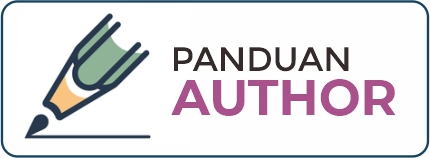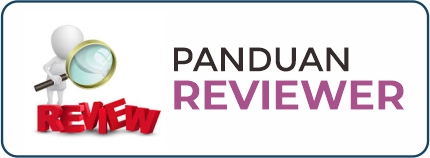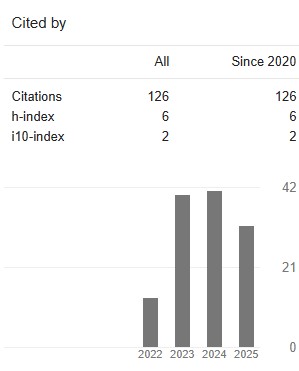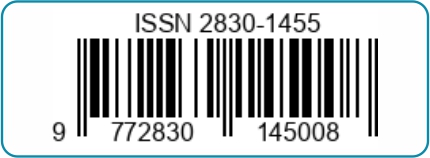Harmonisasi Standar Sertifikasi Halal Internasional dalam Perspektif Fikih Muamalah: Analisis Diplomasi Ekonomi Halal Indonesia di Pasar Global
Harmonizing International Halal Certification Standards: A Fiqh al-Muāmalāt Perspective on Indonesia’s Halal Economic Diplomacy in Global Markets
DOI:
https://doi.org/10.36701/al-khiyar.v5i2.2333Keywords:
Global Halal Industry, Halal Alliances, Halal Industry LandscapeAbstract
The global halal industry is rapidly expanding as one of the strategic sectors in the international economy, with a continually growing market value that involves cross-border transactions, international organizations, and multilateral alliances. Although Indonesia occupies the position of one of the largest consumers of halal products in the world, its contribution as a major player in the global halal industry value chain still faces various structural and diplomatic challenges. This study aims to analyze the harmonization of international halal certification standards from the perspective of fiqh al-muʿāmalah and to formulate the role of Indonesia’s halal economic diplomacy in advocating for the protection of Muslim consumers in global markets. The research employs a qualitative-descriptive approach through library research and policy analysis. The findings indicate that, conceptually, most international halal certification standards converge with maqāṣid al-sharīʿah, particularly in the aspects of ṭahārah, ḥalāl al-dhabīḥah, and istibrā’. However, fragmented standards, divergent ijtihād on animal-derived enzymes and technical alcohol, and asymmetries among certifying authorities generate problems of traceability, the potential for monopolistic practices, and the risk of consumer harm, all of which contradict the legal maxim lā ḍarar wa lā ḍirār. This study underscores the importance of cross-madhhab collective ijtihād (ijtihād jamāʿī), the strengthening of an equitable mutual recognition scheme, and Indonesia’s proactive initiatives as a norm entrepreneur through halal economic diplomacy, including the proposal to establish an international Halal Dispute Board as a dispute settlement instrument and as a means of reinforcing the legitimacy of global halal standards grounded in fiqh al-muʿāmalah.
Downloads
References
Ab Talib, Mohamed Syazwan, Abu Bakar Abdul Hamid, and Mohd Hafz Zulfakar. “Halal Supply Chain Critical Success Factors: A Literature Review.” Journal of Islamic Marketing 6, no. 1 (March 9, 2015): 44–71. doi:10.1108/JIMA-07-2013-0049/FULL/XML.
Ab Talib, Mohamed Syazwan, and Mohd Hafiz Zulfakar. “Sustainable Halal Food Supply Chain Management in a Small Rentier Halal Market.” Arab Gulf Journal of Scientific Research 42, no. 3 (October 23, 2024): 449–63. doi:10.1108/AGJSR-11-2022-0251/FULL/PDF.
Abu Bakr al-Kāsānī. Badāi’ al-Ṣanāi’ Fī Tartīb al-Syarāi’. Mesir: Maṭbaʿah al-Jamāliyyah, 1989.
Al-‘Adawī. Ḥāsyiyah Al-‘Adawī ‘alā Syarḥ Kifāyah al-Ṭālib al-Rabbānī. 1st ed. Vol. 1. Beirut: Dār al-Fikr, 1994.
Al-Albānī, Nāṣiruddīn. Irwāʾ Al-Galīl Fī Takhrīj Aḥādīṡ Manār al-Sabīl. Beirut, 1985.
Al-Burnu, Muhammad Sidqī bin Ahmad bin Muhammad. Al-Wajīz Fī Īḍāhi al-Fiqhiyyah al-Kulliyah. 5th ed. Beirut: Muassasah al-Risālah, n.d.
Al-Fauzān, Ṣāliḥ bin Fauzān. Al-Mulakhkhaṣ al-Fiqhī. Riyad: Dār al-ʿĀṣimah, 1996.
Al-Ḥaṭṭāb al-Ruʿīnī. Mawāhib Al-Jalīl Fī Syarḥ Mukhtaṣar Khalīl. 1st ed. Vol. 4. Beirut: Dār al-Fikr, 1992.
Ali, Md Yunus, Puteri Zahrah Aminan Abdul Ghaffar, Shahriar Kabir, and Sa’adiah Munir. “Halal Food Export and Malaysia’s Potential: The Applicability of the Gravity Theory of Trade.” Journal of Islamic Marketing 13, no. 2 (January 13, 2022): 309–28. doi:10.1108/JIMA-01-2020-0019.
Ali, Mohd Helmi, Kim Hua Tan, and Md Daud Ismail. “A Supply Chain Integrity Framework for Halal Food.” British Food Journal 119, no. 1 (2017): 20–38. doi:10.1108/BFJ-07-2016-0345/FULL/XML.
Al-Matrūdī, Ali bin Abdu al-Aziz bin Ibrahīm. Taṭbīqu Al-Qawāid Al-Fiqhiyyah ‘Ala Al-Masāil Al-Tibbiyyah. Riyad: Universitas Imam Muhammad bin Saūd al-Islamiyyah, 2000.
Al-Nadawī, Alī Ahmad. Al-Qawā’id Al-Fiqhiyyah. Jeddah: Dār al-Basyīr, n.d.
Al-Nawawī. Al-Majmū’ Syarḥ al-Muhażżab. 1st ed. Vol. 8. Kairo: Idārah al-Ṭibā‘ah al-Manīriyah, 1998.
Al-Qurṭubī. Al-Jāmiʿ Li Aḥkām Al-Qur’ān. Kairo: Dār al-Kutub al-Miṣriyyah, 1964.
Alserhan, Baker Ahmad. “On Islamic Branding: Brands as Good Deeds.” Journal of Islamic Marketing 1, no. 2 (June 25, 2010): 101–6. doi:10.1108/17590831011055842/FULL/XML.
Al-Sulamī, ‘Iyāḍ ibn Nāmi. Uṣūlu Al-Fiqhi Alladhī Lā Yasa‘u al-Faqīha Jahluḥu. 1st ed. Vol. 1. Riyad: Dār al-Tadmuriyyah, 2005.
Al-‘Uṡaymīn, Muhammad bin Ṣāliḥ. Al-Syarḥ al-Mumti‘ Alā Zād al-Mustaqni.’ 1st ed. Vol. 15. Mesir: Dār Ibn al-Jawzī, 2000.
Al-Zuḥaylī, Muḥammad Muṣṭafā. Al-Qawā‘id al-Fiqhiyyah Wa Taṭbīqātuhā Fī al-Madhāhib al-Arba‘ah. 1st ed. Damaskus: Dār al-Fikr, 2006.
Arwani, Wawan, Aan Jaelani, Slamet Firdaus, and Tica Fatichah Hanim. “Halal-Thayyib, Food Products, and the Halal Industry: A Thematic Analysis on the Verses of the Qur’an.” Al-Amwal : Jurnal Ekonomi Dan Perbankan Syari’ah 14, no. 1 (July 7, 2022): 99. doi:10.24235/AMWAL.V14I1.10830.
“Australian Red Meat Export Statistics - DAFF.” Accessed July 19, 2025. https://www.agriculture.gov.au/biosecurity-trade/export/controlled-goods/meat/statistics?utm_source=chatgpt.com.
Bonne, Karijn, and Wim Verbeke. “Muslim Consumer Trust in Halal Meat Status and Control in Belgium.” Meat Science 79, no. 1 (May 1, 2008): 113–23. doi:10.1016/J.MEATSCI.2007.08.007.
“Brazil’s Growing Interest in Halal Exports | The Poultry Site.” Accessed July 19, 2025. https://www.thepoultrysite.com/news/2008/11/brazils-growing-interest-in-halal-exports?utm_source=chatgpt.com.
Budiyoko, Budiyoko, Malinda Aptika Rachmah, Wahyu Adhi Saputro, Dewanti Risa Utami, and Kunandar Prasetyo. “Halal Certification of Agricultural Export Commodities: Opportunities and Challenges.” Journal of Halal Product and Research 5, no. 2 (December 21, 2022): 52–61. doi:10.20473/jhpr.vol.5-issue.2.52-61.
Destriyansah, Wahyu, Imsar Imsar, and Muhammad Ikhsan Harahap. “Analysis of the Influence of the Halal Industry on Indonesia’s Economic Growth.” Wiga : Jurnal Penelitian Ilmu Ekonomi 13, no. 2 (September 29, 2023): 232–45. doi:10.30741/WIGA.V13I2.1117.
Hakim, Moh. Fathoni, and Ridha Amaliyah. “Competing Global and Local Halal Standards: Indonesia’s Strategy in Increasing Halal Food Exports After Ratifying SMIIC.” Journal of Digital Marketing and Halal Industry 6, no. 2 (November 15, 2024): 193–210. doi:10.21580/JDMHI.2024.6.2.23610.
“Halal Cosmetics Market Size, Top Brands & Forecast [2033].” Accessed July 19, 2025. https://www.imarcgroup.com/halal-cosmetics-market?utm_source=chatgpt.com.
“Halal Matters: Islam, Politics and Markets in Global Perspective - 1st.” Accessed July 19, 2025. https://www.routledge.com/Halal-Matters-Islam-Politics-and-Markets-in-Global-Perspective/Bergeaud-Blackler-Fischer-Lever/p/book/9781138812765?srsltid=AfmBOorBqs4ttQxseBOshebXFsmu_I7Ul9nAnM5se7mzcncqqMljwpra.
“Halal Meat Statistics and Facts (2025).” Accessed July 19, 2025. https://media.market.us/halal-meat-statistics/?utm_source=chatgpt.com.
Haque, Ahasanul, Abdullah Sarwar, Farzana Yasmin, Arun Kumar Tarofder, and Mirza Ahsanul Hossain. “Non-Muslim Consumers’ Perception toward Purchasing Halal Food Products in Malaysia.” Journal of Islamic Marketing 6, no. 1 (March 9, 2015): 133–47. doi:10.1108/JIMA-04-2014-0033/FULL/XML.
Ibnu Qudāmah, Abū Muḥammad. Al-Mugnī. Vol. 9. Kairo: Maktabah al-Qāhirah, 1968.
“India Spices Market 2024: A Valuation of INR 4,70,339 Crores Predicted by 2032 | IMARC Group - Industry Today.” Accessed July 19, 2025. https://industrytoday.co.uk/market-research-industry-today/india-spices-market-2024-a-valuation-of-inr-470339-crores-predicted-by-2032-imarc-group?utm_source=chatgpt.com.
Jafari, Aliakbar. “Johan Fischer -the Halal Frontier: Muslim Consumers in a Globalized Market.” International Journal of Market Research 54, no. 5 (2012). doi:10.2501/IJMR-54-5-723-729.
Jannah, Muti’ah Nurul, Suryani Suryani, and Efi Syarifudin. “Halal Economic Ecosystem of Indonesia and Thailand through Halal Certification Bodies (BPJPH & CICOT).” Al Dzahab 6, no. 1 (March 23, 2025): 55–62. doi:10.32939/DHB.V6I1.4937.
Jannat, Muhsina, and Md. Monirul Islam. “Consumers’ Purchase Intention towards Certified Halal Foods.” International Journal of Islamic Marketing and Branding 4, no. 3/4 (2019): 228. doi:10.1504/IJIMB.2019.107287.
Journal, Asean, Dhefara Harsaning Djati, and Danang Rosadi. “Asean Journal of Halal Studies Development of the Halal Industry Towards the Growth of the Islamic Economy in Indonesia,” n.d. doi:10.26740/ajhs.v2i01.43604.
Masron, Tajul Ariffin, Nik Hadivan Nik Azman, and Siti Hasnah Hassan. “Halal Development and Food Exports: Evidence from Malaysia and the Middle Eastern Asian Countries.” Jurnal Ekonomi Malaysia 48, no. 2 (2014): 61–69. doi:10.17576/JEM-2014-4802-06.
Masruroh, Nikmatul. “The Competitiveness of Indonesian Halal Food Exports in Global Market Competition Industry.” Economica: Jurnal Ekonomi Islam 11, no. 1 (July 1, 2020): 25–48. doi:10.21580/economica.2020.11.1.3709.
Meydiyana Sagita, Alda. “Halal Certification Policy in Indonesia and the World Trade Organization.” International Journal of Integrated Science and Technology (IJIST) 2, no. 9 (2024): 795–810. doi:10.59890/ijist.v2i9.2396.
Nurdiana, Nurdiana, Siradjuddin Siradjuddin, and Rahmawati Muin. “The Halal Industry in Southeast Asia: A Comparison of the Development of Indonesia and Thailand.” Formosa Journal of Multidisciplinary Research 4, no. 6 (June 25, 2025): 2619–26. doi:10.55927/fjmr.v4i6.270.
“Posisi Indonesia Dalam State of The Global Islamic Econom...” Accessed July 19, 2025. https://iaei.or.id/id/berita-dan-artikel/artikel/posisi-indonesia-dalam-sgie.
Putri, Arinda Soraya, Nazhifa Rahmi Susilo, Ardhy Yuliawan Norma Sakti, and Danis Eka Prasetya Wicaksana. “The Development of Halal Supply Chain Research in Indonesia: A Comparative Study.” Jurnal Teknik Industri 25, no. 2 (August 31, 2024): 97–118. doi:10.22219/JTIUMM.VOL25.NO2.97-118.
Rahman, Muhammad Khalilur, Shaharin Akter, and Suhaiza Zailani. “Operation of Halal Supply Chain Management: Challenges, Opportunities, and Strategies.” Islamic Operations Management: Theories and Applications, April 16, 2024, 176–87. doi:10.4324/9781003289050-15.
Rohaeni, Yeni, and Ahmad Hidayat Sutawijaya. “PENGEMBANGAN MODEL KONSEPTUAL MANAJEMEN RANTAI PASOK HALAL STUDI KASUS INDONESIA.” J@ti Undip : Jurnal Teknik Industri 15, no. 3 (September 30, 2020): 177–88. doi:10.14710/JATI.15.3.177-188.
Salehudin, Imam, and Bagus Adi Luthfi. “Marketing Impact of Halal Labeling toward Indonesian Muslim Consumer’s Behavioral Intention Based on Ajzen’s Planned Behavior Theory: Policy Capturing Studies on Five Different Product Categories.” ASEAN Marketing Journal 3, no. 1 (October 23, 2013). doi:10.21002/AMJ.V3I1.2013.
“State of the Global Islamic Economy Report.” Accessed July 19, 2025. https://www.dinarstandard.com/post/state-of-the-global-islamic-economy-report-2023.
“State of the Global Islamic Economy Report.” Accessed July 19, 2025. https://www.dinarstandard.com/post/state-of-the-global-islamic-economy-report-2023?utm_source=chatgpt.com.
“Thailand Eyes Greater Share of Booming Global Halal Market Worth $3.1 Trillion by 2027.” Accessed July 19, 2025. https://www.nationthailand.com/business/economy/40051582?utm_source=chatgpt.com.
“Top 10 Exporters Shipped Halal Meat Worth $14.04 Bn to OIC Countries - Euromeatnews.Com.” Accessed July 19, 2025. https://www.euromeatnews.com/Article-Top-10-exporters-shipped-halal-meat-worth-%2414.04-bn-to-OIC-countries-/798?utm_source=chatgpt.com.
Utama, Dana Marsetiya, Shanty Kusuma Dewi, and Melania Dindha Antika. “A New Framework for Risks Mitigation Halal Food Supply Chain: A Case Study in Indonesia.” International Journal of System Assurance Engineering and Management, 2025. doi:10.1007/S13198-025-02836-Y.
Zailani, Suhaiza, Zainal Arrifin, Nabsiah Abd Wahid, Rosly Othman, and Yudi Fernando. “Halal Traceability and Halal Tracking Systems in Strengthening Halal Food Supply Chain for Food Industry in Malaysia (A Review).” Journal of Food Technology 8, no. 3 (March 1, 2010): 74–81. doi:10.3923/JFTECH.2010.74.81.
Downloads
Published
Issue
Section
License
Copyright (c) 2025 Kurnaemi Anita, Nasrullah bin Sapa

This work is licensed under a Creative Commons Attribution-NonCommercial-ShareAlike 4.0 International License.













